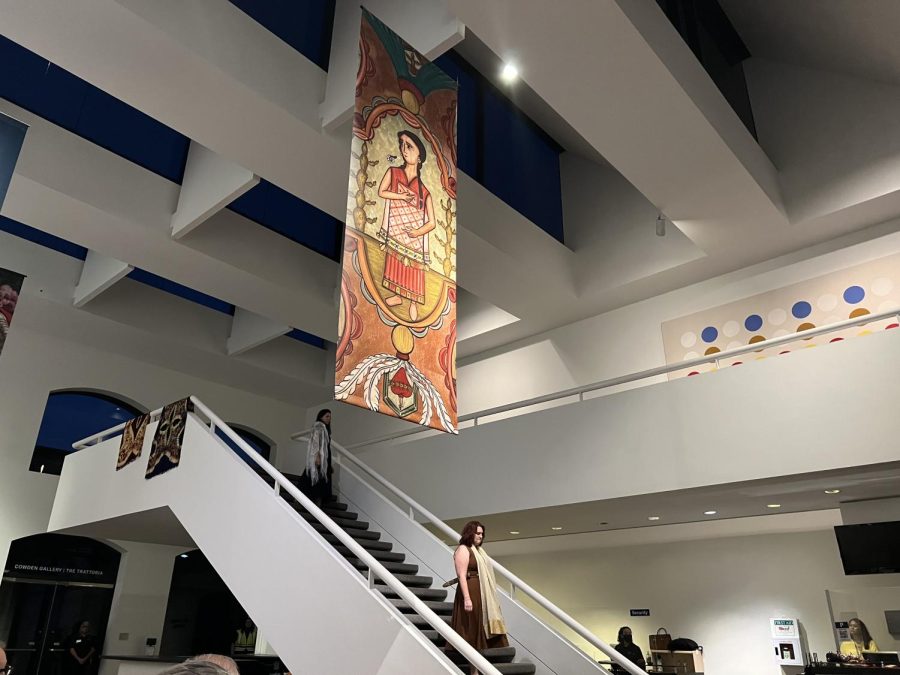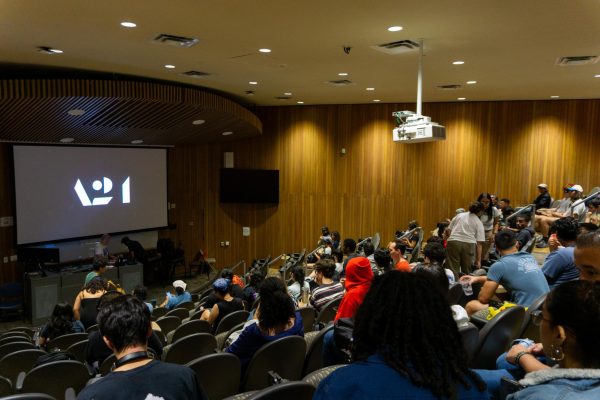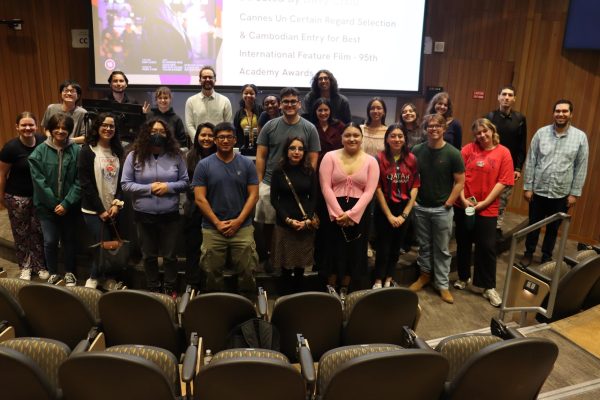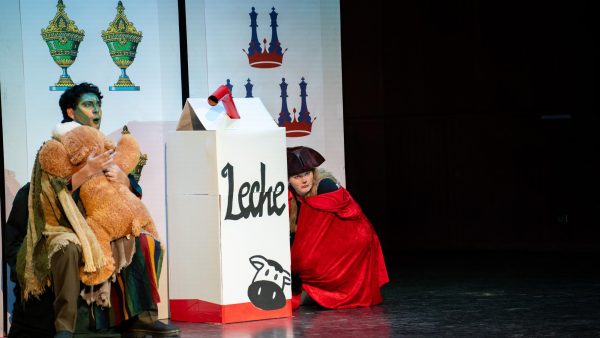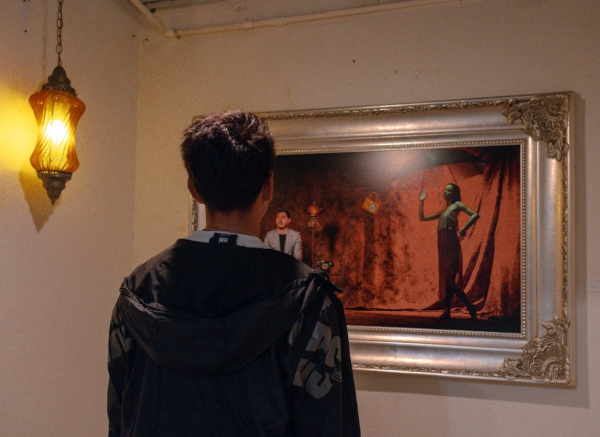‘La Malinche: Traitor, Savior’
An immersive opera performance with Nathan Felix
October 18, 2022
The opera of “La Malinche: Traitor, Survivor” was composed conjunctively with the exhibition titled, similarly, “Traitor, Survivor, Icon: The Malinche” at the San Antonio Museum of Art (SAMA) by Austin native Nathan Felix. He presented his immersive opera on Friday, Oct. 14, as part of Hispanic Heritage Month.
As Felix was busy gathering the final preparations for his opera, the audience bustled with anticipation of his production. Many compliments were heard from the crowd, some saying this event felt “very special, something that does not happen every day.” Just as the crowd was getting antsy, Stephanie O’Barr Garcia, SAMA’s public programs, diversity and inclusion manager, introduced Felix. Following his introduction, he informed us about the program and thanked us for the opportunity to present his work.
Felix is known for his guerrilla-style approach in his works, so it was pleasant to hear him encourage the audience to get up and move around. But, the audience was too entranced by Celeste Morales, who played Malinche, as she lured the crowd towards her voice like a siren. She stepped into the great hall of SAMA, approaching her Aztec slaves, played by Emily Anderson and Lucianna Astorga. Soon after their introductory scene, Hernán Cortés, played by Thomas Soto, advanced toward them.
The Aztec slaves declared him a monster as Cortés forcefully took Malinche. He held up his sword to stop their cries of agony; the slaves fled the scene and handed off their weapons to audience members. Cortés’ voice beckoned to them.
As Cortés took Malinche, the fear and hesitation felt through the air were heard in the cellos’ repeated weary notes. Silence briefly ensued after all of the chaos and heartbreak from Malinche’s slaves and herself. The cello and violin soon accompanied the silence as they made sorrowful noises, which is when her slaves mark her as a traitor for leaving with Cortés. Just as their anger and betrayal build up, he reappears before Malinche, and they embrace one another.
Soon a battle broke out between Cortés and the Aztec slaves. He conquered them, just as he did the rest of Mexico. The singers disappear, leaving behind their mark of Aztec resilience and sorrowful notes, all too-telling of the harsher reality in 1519, when Cortés, along with his Spanish men, conquested, colonized, raped and mistreated the indigenous people of Mexico.
Malinche then holds a knife to Cortes but does not strike him, reflecting on the events of her journey and internal conflict. In modern-day, this could be described as Stockholm syndrome, but it was much more than that in the 16th century. La Malinche, or Malitzin, was Cortés’ translator to Moctezuma II, an Aztec leader before the fall of his empire at Cortés’ hand.
Felix, his cast and the ensemble portrayed the events that took place on indigenous land under Cortés’ conquest through his opera with great emotion. They received a standing ovation from the audience and rightfully deserved praise once the program concluded. The “La Malinche” exhibition will be displayed at SAMA through Jan. 8, 2023. To keep up with Felix and his works, visit his Instagram @nathannoise.

